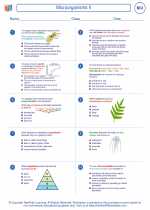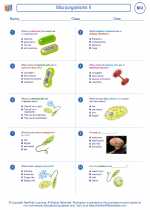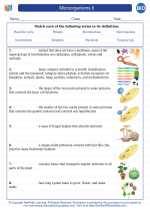Buoyancy
Buoyancy is the ability of an object to float in a liquid or gas. It is a force that acts in the opposite direction of gravity, causing objects to float or rise when placed in a fluid.
Principles of Buoyancy
Buoyancy is based on Archimedes' principle, which states that the buoyant force acting on an object submerged in a fluid is equal to the weight of the fluid displaced by the object. This principle explains why objects float or sink in a fluid.
Factors Affecting Buoyancy
- Density: The density of an object and the fluid it is placed in determine its buoyancy. If the object is less dense than the fluid, it will float; if it is more dense, it will sink.
- Volume: The volume of the object also affects its buoyancy. Larger objects displace more fluid, experiencing a greater buoyant force.
- Gravity: The force of gravity acting on the object and the fluid affects the buoyancy. For example, in space where there is microgravity, objects behave differently in fluids.
Applications of Buoyancy
Buoyancy has numerous practical applications, including:
- Shipbuilding: Understanding buoyancy is crucial for designing ships and other watercraft to ensure they float and remain stable.
- Swimming and Diving: Buoyancy plays a role in swimming and diving, affecting the ability of a person to float or sink in water.
- Hot Air Balloons: The principle of buoyancy is used in hot air balloons to lift the balloon and its passengers off the ground.
Study Guide for Buoyancy
When studying buoyancy, it's important to understand the following key points:
- Archimedes' principle and how it explains buoyancy.
- The relationship between an object's density, the fluid's density, and its ability to float or sink.
- The calculation of the buoyant force using the weight of the displaced fluid.
- Real-life applications of buoyancy in various fields such as engineering, sports, and transportation.
Additionally, it's helpful to practice problems involving buoyancy to reinforce understanding of the concept.
.◂Biology Worksheets and Study Guides High School. Microorganisms II
Worksheet/Answer key Microorganisms II
Microorganisms II  Worksheet/Answer key
Worksheet/Answer key Microorganisms II
Microorganisms II  Worksheet/Answer key
Worksheet/Answer key Microorganisms II
Microorganisms II  Vocabulary/Answer key
Vocabulary/Answer key Microorganisms II
Microorganisms II  Vocabulary/Answer key
Vocabulary/Answer key Microorganisms II
Microorganisms II  Vocabulary/Answer key
Vocabulary/Answer key Microorganisms II
Microorganisms II  Vocabulary/Answer key
Vocabulary/Answer key Microorganisms II
Microorganisms II  Vocabulary/Answer key
Vocabulary/Answer key Microorganisms II
Microorganisms II 

 Worksheet/Answer key
Worksheet/Answer key
 Worksheet/Answer key
Worksheet/Answer key
 Vocabulary/Answer key
Vocabulary/Answer key
 Vocabulary/Answer key
Vocabulary/Answer key
 Vocabulary/Answer key
Vocabulary/Answer key
 Vocabulary/Answer key
Vocabulary/Answer key
 Vocabulary/Answer key
Vocabulary/Answer key

The resources above cover the following skills:
Life Science
Organization and Development of Living Organisms - A. Cells have characteristic structures and functions that make them distinctive. B. Processes in a cell can be classified broadly as growth, maintenance, reproduction, and homeostasis. C. Life can be organized in a functional and structural hierarchy ranging from cells to the biosphere. D. Most multicellular organisms are composed of organ systems whose structures reflect their particular function.
Relate the major structure of fungi to their functions.
Diversity and Evolution of Living Organisms - A. The scientific theory of evolution is the fundamental concept underlying all of biology. B. The scientific theory of evolution is supported by multiple forms of scientific evidence. C. Organisms are classified based on their evolutionary history. D. Natural selection is a primary mechanism leading to evolutionary change.
Discuss distinguishing characteristics of the domains and kingdoms of living organisms.